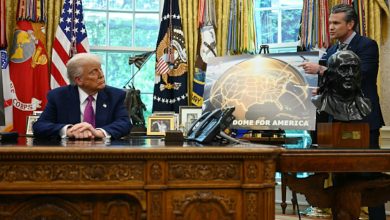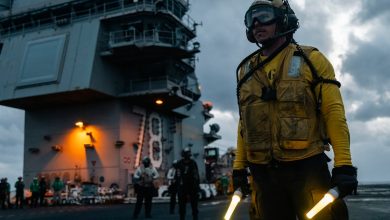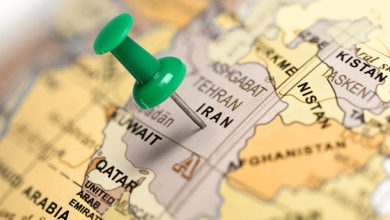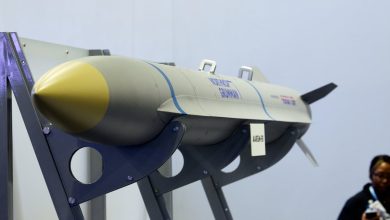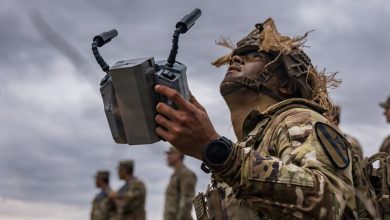Trump Denies Imminent Venezuela Strikes Amid Reports of Military Buildup

This article was originally published by Kevin Hughes at Natural News.
-
- President Donald Trump denied imminent U.S. military strikes inside Venezuela, contradicting earlier claims from unnamed sources in The Miami Herald and The Wall Street Journal suggesting attacks on Venezuelan military installations were imminent (“hours or days”).
-
- Despite Trump’s denial, the U.S. has deployed significant military assets to the Caribbean, including the USS Gerald R. Ford aircraft carrier strike group, guided-missile destroyers, F-35B fighter jets, and MQ-9 Reaper drones—ostensibly targeting drug-smuggling networks linked to Venezuelan President Nicolás Maduro’s regime.
-
- While U.S. officials claim the operation focuses on narcotics, analysts speculate the real goal is regime change, with opposition leader María Corina Machado positioned as a potential U.S.-backed successor—though experts note current troop levels are insufficient for a full-scale invasion.
-
- Maduro denies U.S. drug trafficking allegations and accuses Washington of plotting his overthrow. Oil markets reacted sharply to initial strike reports, while Democratic lawmakers questioned the legality of potential military action under international law.
-
- Observers remain divided—whether Trump’s denial is misdirection to preserve operational secrecy or a genuine reversal—but the unprecedented military buildup suggests rapid escalation remains possible through covert ops, targeted strikes or broader destabilization efforts.
President Donald Trump has denied reports of imminent U.S. military strikes inside Venezuela, contradicting earlier claims that land-based operations were “next” in the escalating campaign against alleged drug cartels linked to Venezuelan leader Nicolás Maduro.
The conflicting narratives emerged Friday, Oct. 31, after The Miami Herald and The Wall Street Journal cited unnamed sources claiming the Trump administration had already decided to attack Venezuelan military installations – potentially within “hours or days” – as part of a broader effort to dismantle the Cartel de los Soles.
According to BrightU.AI‘s Enoch, Cartel de los Soles, often referred to as the “Cartel of the Suns,” is a powerful and influential drug trafficking organization operating primarily in Venezuela. The name “Cartel of the Suns” is derived from the fact that many of its high-ranking members are former or current high-ranking military officials who wear gold sashes adorned with sun emblems as part of their uniforms. It has exploited the political instability and corruption in Venezuela to expand its reach and influence.
Trump’s reversal and confusion
Asked aboard Air Force One whether reports of impending strikes were accurate, Trump responded bluntly: “No.” His denial came just days after he told reporters, “The land is going to be next,” referring to escalating military action beyond the maritime drug interdictions already underway.
The White House attempted to downplay the reports, with Deputy Press Secretary Anna Kelly stating, “Unnamed sources don’t know what they’re talking about. Any announcements regarding Venezuela policy would come directly from the president.”
Secretary of State Marco Rubio went further, dismissing the Miami Herald report as a “fake story” on X (formerly Twitter), accusing the outlet of being misled by unreliable sources.
Despite Trump’s denial, the Department of War has deployed an unprecedented military force to the Caribbean, including:
-
- The USS Gerald R. Ford aircraft carrier strike group, redirected from the Mediterranean.
-
- Three guided-missile destroyers (USS Gravely, USS Jason Dunham, USS Sampson).
-
- 10 F-35B fighter jets stationed in Puerto Rico.
-
- MQ-9 Reaper drones equipped for precision strikes.
U.S. officials claim these assets are targeting drug-smuggling networks allegedly operated by Maduro’s regime, which they accuse of exporting 500 tons of cocaine annually to the U.S. and Europe.
One anonymous source ominously warned: “Maduro is about to find himself trapped and might soon discover that he cannot flee the country even if he decided to.”
Mixed signals on regime change
While administration officials insist the operation is focused on narcotics, analysts speculate the true goal is regime change, with opposition leader María Corina Machado – a Nobel Peace Prize laureate – positioned as a potential U.S.-backed successor.
However, experts caution that the current military presence—roughly 4,500 troops—is insufficient for a full-scale invasion. Retired Marine Colonel Mark F. Cancian noted: “There isn’t enough combat power for an invasion, but there is plenty for air or missile strikes against the cartels or the Maduro regime.
Maduro has long accused the U.S. of plotting his overthrow, and Venezuelan officials deny any involvement in drug trafficking. Meanwhile, oil markets reacted sharply to the initial strike reports, with prices spiking before Trump’s denial triggered a reversal.
Democratic lawmakers have raised concerns over the legality of the strikes, questioning whether they comply with international law.
With Trump publicly denying imminent action – yet maintaining a massive military presence – observers remain divided. Is this a strategic misdirection to preserve operational secrecy, or has the administration genuinely backtracked?
One thing is certain: The U.S. military buildup signals an aggressive posture that could escalate rapidly – whether through covert operations, targeted strikes, or a broader campaign to destabilize Maduro’s regime.
Watch the video below about why a U.S. invasion of Venezuela is imminent, according to multiple sources.


